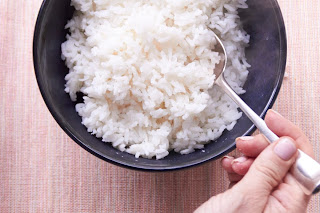Health tips - How to cook rice in a traditonal way!
How to cook rice in a traditional way
With the microwave and cooker making our lives easier and the fast-paced lifestyle, we often forget that traditional cooking methods have many health benefits.
Currently, we can make sponge-like rice in the cooker in just a few minutes. But it is doubtful whether the food we eat now is as healthy as the food we got when our ancestors soaked rice for a while and then boiled the rice over low heat. In this post, we will see why it is important to soak rice before cooking.
Health benefits of soaking rice
Soaking the rice before cooking helps integrate the nutritional properties, enhances the gastrointestinal tract, and effectively absorbs vitamins and minerals from the rice. In addition, the soaked rice softens quickly and creates a beautiful flowering texture, which allows it to retain the aromatic components of the rice. What does ancient kitchen science say?
According to the early 12th-century Sanskrit text, washing, and soaking rice is an important step because it removes unwanted layers and makes the rice soft and fluffy. Soaking also speeds up the cooking process as the grains absorb water and its heat further softens the grain.
Eliminates phytic acid
Soaking the rice helps to remove the phytic acid found in plant seeds, which affects the body’s absorption of nutrients such as iron, zinc, and calcium. According to a study, phytic acid is present in large seeds, grains, legumes, and nuts. It is the storage unit of phosphorus in the seeds and it also prevents the absorption of minerals. Soaking the rice in water helps to remove the phytic acid. People suffering from zinc and iron deficiency should follow the practice of soaking rice.
What type of rice is better to soak?
Plain rice is good for soaking. Small rice, white long grain basmati and other types of rice used to make pulao are not good for soaking.
How long does it take to soak? Study says we should soak brown, black, red, and unpolished rice 6-12 hours and polished brown rice for 4-6 hours. The sticky rice is soaked overnight and it is good to soak the basmati, jasmine, and sushi rice for 15-20 minutes.


